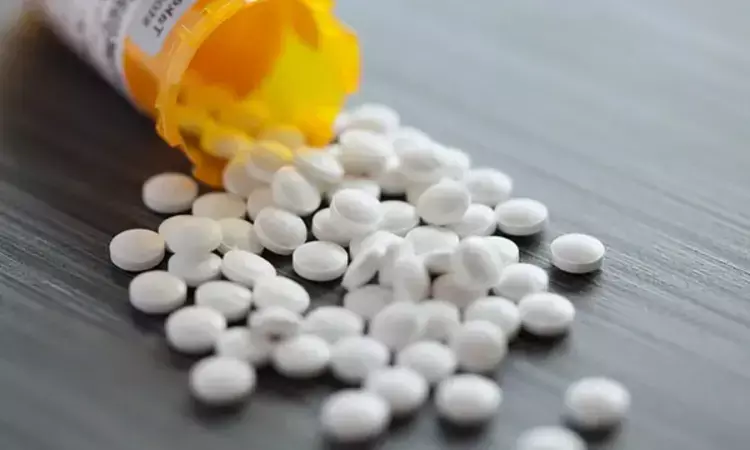- Home
- Medical news & Guidelines
- Anesthesiology
- Cardiology and CTVS
- Critical Care
- Dentistry
- Dermatology
- Diabetes and Endocrinology
- ENT
- Gastroenterology
- Medicine
- Nephrology
- Neurology
- Obstretics-Gynaecology
- Oncology
- Ophthalmology
- Orthopaedics
- Pediatrics-Neonatology
- Psychiatry
- Pulmonology
- Radiology
- Surgery
- Urology
- Laboratory Medicine
- Diet
- Nursing
- Paramedical
- Physiotherapy
- Health news
- Fact Check
- Bone Health Fact Check
- Brain Health Fact Check
- Cancer Related Fact Check
- Child Care Fact Check
- Dental and oral health fact check
- Diabetes and metabolic health fact check
- Diet and Nutrition Fact Check
- Eye and ENT Care Fact Check
- Fitness fact check
- Gut health fact check
- Heart health fact check
- Kidney health fact check
- Medical education fact check
- Men's health fact check
- Respiratory fact check
- Skin and hair care fact check
- Vaccine and Immunization fact check
- Women's health fact check
- AYUSH
- State News
- Andaman and Nicobar Islands
- Andhra Pradesh
- Arunachal Pradesh
- Assam
- Bihar
- Chandigarh
- Chattisgarh
- Dadra and Nagar Haveli
- Daman and Diu
- Delhi
- Goa
- Gujarat
- Haryana
- Himachal Pradesh
- Jammu & Kashmir
- Jharkhand
- Karnataka
- Kerala
- Ladakh
- Lakshadweep
- Madhya Pradesh
- Maharashtra
- Manipur
- Meghalaya
- Mizoram
- Nagaland
- Odisha
- Puducherry
- Punjab
- Rajasthan
- Sikkim
- Tamil Nadu
- Telangana
- Tripura
- Uttar Pradesh
- Uttrakhand
- West Bengal
- Medical Education
- Industry
Proton Pump Inhibitor Use Linked to Hypertension Risk in Menopausal Women, reveals AHA study

A new study published in the Journal of the American Heart Association revealed that long-term use of proton pump inhibitors (PPIs) is associated with an increased risk of developing hypertension in menopausal women.
For diseases including peptic ulcer disease and esophagitis, proton pump inhibitors (PPIs) are the preferred course of treatment. Between 2002 and 2009, PPI usage more than doubled (from 4% to 9%, respectively). In the US, one of the PPIs was prescribed over 70 million times in 2016. Bone fractures, pneumonia, and kidney damage are among the adverse effects that have been related to inappropriate PPI usage, particularly in older adults, whether as a result of extended use or a lack of a suitable rationale.
The aim of this study was to assess the relationship between incident hypertension and PPI usage in menopausal women who were participated in the Women's Health Initiative Observational Study, or WHI-OS. Examining the relationship between PPI usage and changes in blood pressure recorded in a clinical environment over a three-year period was the secondary goal.
This research included 64,720 menopausal women who were enrolled in the Women's Health Initiative Observational Study (1993–1998) and were free of hypertension and cardiovascular disease. Medication inventories were used to assess the baseline PPI usage and duration. According to self-report on yearly questionnaires, the outcome was incident hypertension diagnosed or treated by a physician.
Multivariable Cox proportional hazard models were used to estimate the hazard ratios (HRs) and 95% CIs for incident hypertension based on baseline PPI usage (yes/no) and duration (less than a year, one to three years, and more than three years). Using linear regression, the relationship between PPI usage and changes in recorded blood pressure over a 3-year period was investigated.
The mean follow-up period was 8.7 years, and there were 28951 instances of incident hypertension. In the fully adjusted model, PPI use was linked to a 17% increased risk of hypertension when compared to nonuse (HR, 1.17 [95% CI, 1.08–1.27]). An incrementally greater risk of hypertension was substantially linked to longer PPI usage durations (HR, 1.13, 1.17, 1.28, respectively; trend P<0.001).
PPI new users had a substantially higher 3-year change in multivariable-adjusted mean systolic blood pressure (+3.39 mm Hg, P=0.049) than those who had never used a PPI. Overall, menopausal women who used PPIs had a greater chance of being diagnosed with hypertension, and the risk increased significantly with longer usage duration.
Source:
Soliman, A. I., Wactawski-Wende, J., Millen, A. E., Gray, S. L., Eaton, C. B., Hovey, K. M., Donneyong, M., Saquib, N., Mouton, C. P., Laddu, D., Liu, S., Shimbo, D., Wassertheil-Smoller, S., & LaMonte, M. J. (2025). Proton pump inhibitor use and incident hypertension in menopausal women. Journal of the American Heart Association, 14(13), e040009. https://doi.org/10.1161/JAHA.124.040009
Dr Prem Aggarwal, (MD Medicine, DNB Medicine, DNB Cardiology) is a Cardiologist by profession and also the Co-founder and Chairman of Medical Dialogues. He focuses on news and perspectives about cardiology, and medicine related developments at Medical Dialogues. He can be reached out at drprem@medicaldialogues.in


